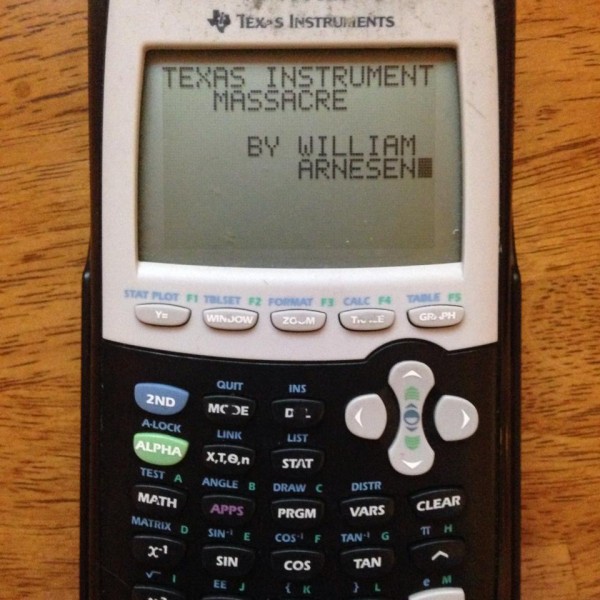
For Rockefeller it was oil. For Carnegie it was steel. For Texas Instruments, it was the chunky lovechild of a Game Boy Advance and a PacMan handset: the TI-84.
Washington Post Innovation writer Matt McFarland published a scathing review of the now ubiquitous counting machine Sept. 2, documenting its infiltration into math classes all across America. His article speaks the truth: the TI-84 is too expensive for its limited potential and it’s time for it to step aside.
Born in 2004, the heyday of Tamagotchi and the year of Star Wars Episode III, the bulky but unassuming calculator soon took the educational world by storm. With 24 kilobytes of RAM space and a large pixel screen, the boxy, black device was a technological godsend to math classes around the nation.
But while we all grew up and the technology world spawned the smartphone, the tablet, the HDTV, and the Cloud, the scrappy little calc’ didn’t meaningfully evolve. Like Peter Pan in Neverland, the TI-84 remained the same year after year. Despite its age and glaring technological shortcomings, McFarlane reports how the dinosaur still dominates 93 percent of the graphing calculator market and commands a price in excess of $100, more expensive than the Samsung Galaxy S5, a device with hundreds of times more processing power.
Why?
The simple answer is the power of monopoly. Whereas other firms must constantly improve their products and lower their prices to entice customers into buying their product or service, there isn’t a real competitor to the Texas titan. Teachers don’t have time for five separate lessons on graphing linear functions to cater to students with different calculators, so they assign students to buy one copy: the TI-84.
This exact mindset is what fuels the obscene returns Texas Instruments reaps from kids every year. Blayne Curtis, analyst at the major British bank Barclays, is reported in the Washington Post as estimating that the “TI-84 Plus costs $15-20 to manufacture and has a profit margin of over 50 percent for Texas Instruments.” In contrast, most PC makers make only 3%, MacFarland said.
In the end, it comes down to market competition. One hundred dollars for a bulky contraption whose job can be done on a nifty smartphone app is the mark of a company that has risen too high and is due for a fall.










Grace Steinwurtzel • Nov 19, 2014 at 12:37 pm
<33333
Dorito Lord • Sep 8, 2014 at 9:11 am
it’s spelt Tamagotchi man, how could you misspell the cultural icon of a generation